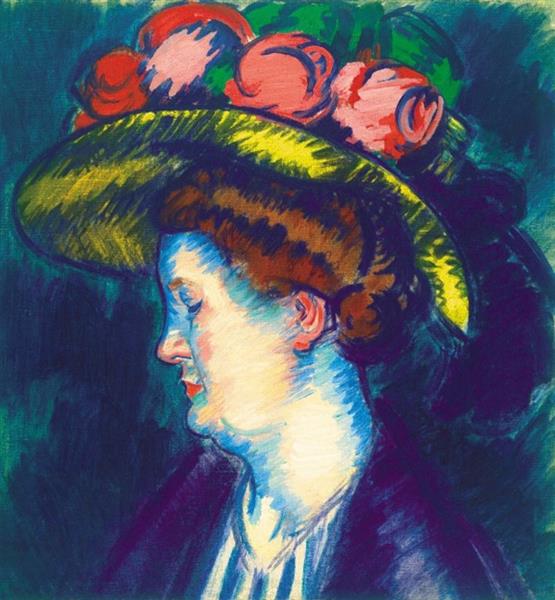Description
János Vascary, one of the great masters Hungarian art of the early twentieth century, offers us in "Hölgy Rózsás Kalapban 1911" a work that distills elegance and sophistication. This painting, which translates as "lady with a 1911 rose hat", is a clear testimony of Vasary's ability to capture the essence of an era and capture it in the female figure.
The composition of painting is a meticulous study of grace and fashion. The lady, an undisputed protagonist of the scene, stands out in the center of the canvas, cover with a white dress that harmoniously contrasts with the background. The hat, the titular element of the work, is adorned with brilliant roses, whose vibrant pink tone adds a touch of dynamism and life to the composition.
Vasaryry's technique in this piece reveals its domain of color and light. The lady's skin is gently illuminated, creating a sensation of three -dimensionality and realism that mixes with a certain air of idealization. The artist uses subtle shadows and reflexes to accentuate the features of the figure, providing a sensation of volume and depth that invites the observer to a more intimate contemplation.
The use of color in "Hölgy Rózsás Kalapban 1911" is particularly notable. Vasistry opts for a palette that oscillates between sober tones and bright colors, creating a visual effect where the neutrality of the dress and the background allow the details of the hat to stand out with greater emphasis. The choice of white for the dress is not accidental; It could be interpreted as a symbol of purity or a way of highlighting the female figure in its maximum splendor, free of unnecessary chromatic distractions.
An essential aspect of this work is the expression of the lady. His face reflects an introspective calm, perhaps a slight melancholy or a serene contemplation. This enigmatic expression gives the painting a sense of mystery and emotional depth, allowing multiple interpretations and personal connections for those who observe it.
János Vascary, born in Kaposvár in 1867, was a painter who crossed various styles and movements throughout his career. From impressionism to Art Nouveau, its artistic evolution was a constant search for new forms of expression and a reflection of the European currents of its time. The work "Hölgy Rózsás Kalapban 1911" is located in a transition stage where Vascary begins to incorporate elements of modernity and a subtle influence of symbolism, highlighting his ability to adapt and evolve without losing his artistic identity.
This painting It can be compared to other contemporaries of his who also explored the female figure and fashion as central themes, such as Gustav Klimt with his golden and ornate ornamented ornamented portraits or John Singer Sargent with his mastery in capturing the personality of his models. However, Vascary brings its own sensitivity, a fusion of tradition and modernity that distinguishes it in the artistic panorama of its time.
In summary, "Hölgy Rózsás Kalapban 1911" is a work that not only stands out for its aesthetic beauty, but also for its ability to evoke an entire era and lifestyle. It is a piece that allows the spectator to immerse himself in the world of the early twentieth century through the eyes of an elegant lady, captured with the mastery of a visionary artist like János Vasaryry.
KUADROS ©, a famous paint on your wall.
Hand-made oil painting reproductions, with the quality of professional artists and the distinctive seal of KUADROS ©.
Art reproduction service with satisfaction guarantee. If you are not completely satisfied with the replica of your painting, we refund your money 100%.

